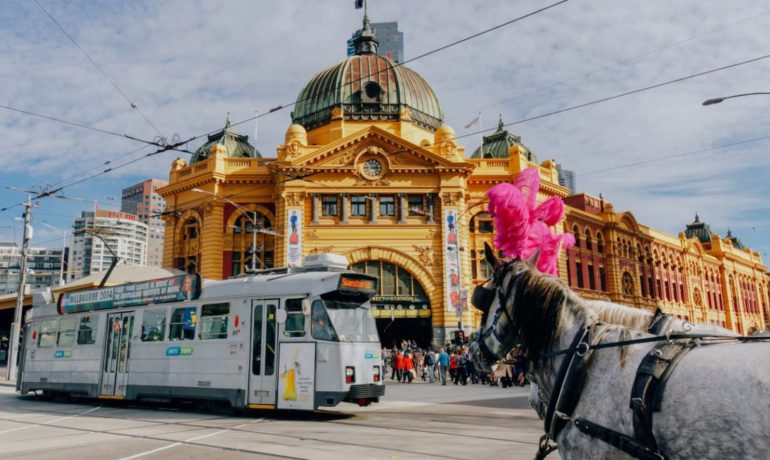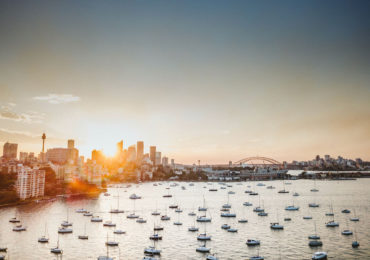Are countries like Australia, New Zealand, or Canada expensive countries to study and to live in? Tune in to our live broadcast below with Yashinni Mathiahlagan from StudyAdelaide in Australia to understand the cost of living in Australia for example.
Find out everything, from what you can expect to pay for your bills, accommodation, transport, and course fees.
Accommodation: Where Will You Live?

Your main options for accommodation are student housing, flat-shares, or home-stays. Alternatively, you could rent a property yourself.
You’ll find that accommodation is less expensive in Australia’s smaller cities (such as Hobart in Tasmania, or Adelaide in South Australia), as compared to Melbourne and Sydney. For example, housing in the smaller city of Adelaide ranges from $210 to $400 per week.
Living further away from the city can be a less expensive option, and if you are near good public transport, it’s more practical.
Typically, you’ll find that shared accommodation will be your most affordable option.
Hot tip: Check out Realestate.com.au if you’re looking for your own place. Otherwise, flatmates.com.au, flatmatefinders.com.au, or gumtree.com is where you may secure yourself shared accommodation.
Transport: How Will You Get Around?

Transport in Australia’s big cities is simple, efficient, ad inexpensive. There’s certainly no need for a car.
Sydney and Melbourne have great train systems that link the city with its surrounding suburbs. Trains also operate late into the night. If you live in the city, you might not even need to use the train system as you can just walk to campus.
Sydney and Melbourne use specific cards (Opal in Sydney, Myki in Melbourne) that will give you access to ferries, trains, trams, and buses.
As smaller cities, like Adelaide, are safe, many international students choose to cycle. Still, there are buses, trains, and trams that connect the city and a monthly pass will only cost around $49. Yashinni says Adelaide is known as the ‘20 minute city’ – it’s 20 minutes to get to the beach, the hills, or to get around most of the city.
If you are considering to get a car, you can read Our Guide to Getting a Driver’s License for International Students
Groceries: How Much Does Food Cost?

Australia-wide, a litre of milk or a loaf of bread will cost you less than a dollar. Cooking for yourself can save you serious money, and can be much healthier than eating out. On the other hand, if you would still like to eat out, the cheapest meals you’ll find are likely to be AUD $7 at minimum.
In Adelaide, you could spend as little as $50-60 per week on groceries, if you seek out local food markets and keep an eye out for specials at your supermarket.
Hot tip: Cook for yourself! Consider shopping at supermarkets like Aldi, and find the ‘once a week’ deals at restaurants and pubs (i.e. $5 steaks on Tuesday or $7 Monday Curries).
Course Fees – How Much Will They Cost?

Generally, university fees are around $30,000 per year. If you want a diploma or vocational education training, college fees are around $15,000 per year.
English language schools which are part of a university can cost up to $450 a week, but typical prices for English language (stand-alone) institutes are around $300. You may be able to find classes at $180 per week for evening classes.
Perhaps, you’d like to read about the most cost-effective degrees from the best ranked Australian Universities in 2018
Bills: What About Internet and Electricity?
![]()
Home internet is usually included in rental costs. However, if you rent a place for yourself, you’ll pay between $50 and $100 per month.
Electricity is billed quarterly, and typically ranges between $180 and $500.
How Can I Spend Less Money?
International students can make money, by working up to 40 hours a fortnight. The unemployment rate in Australia is much lower than in many other countries, and the minimum wage is quite high (relative to other countries).
Want a part-time job? Try approaching businesses directly to ask if they have work available. If you want to know more about how to work in Australia check out this post clicking here.
Yashinni from StudyAdelaide was proactive as a student, going to retail outlets, cafes and food courts to get started. She also recommends taking advantage of job preparation services from colleges and universities. They can help you build your resume and prepare for interviews.
Scholarships in Australia (covered extensively in this video) are available, but competitive. They’re often given as a partial scholarship to the high-performing students, ranging between 10-25% of tuition fees.
What is the financial requirement to get a student visa?
You need to have enough money that is genuinely available to you to pay for your course fees, travel and living costs for you and your accompanying family members while you are in Australia.
Where you need to provide evidence of financial capacity, you will be able to demonstrate this by providing one of the following:
- 12 months of funds option:
- Provide evidence of funds to cover travel to Australia and 12 months living, course and (for school aged dependants) schooling costs for the student and accompanying family members
- If you are coming to Australia for a short course, you will only need to show evidence of funds for the intended period of stay.
- Annual income option:
- Provide evidence that you meet the annual income requirement.
The annual income option requires students to provide evidence of personal annual income of at least AUD60,000. For students accompanied by family members the amount is AUD70,000.
What is the amount to demonstrate?
On 23 October 2019, the annual living costs amounts for students, guardians and accompanying family members were updated in line with Consumer Price Index (CPI) increases to mitigate the risk of visa holders falling into financial hardship during their stay in Australia.
The following are the annual living costs and expenses for a primary applicant:
- AUD21,041
- for a spouse or de facto partner of the primary applicant AUD7,362
- for a dependent child AUD3,152
- annual school costs AUD8,296
- personal annual income if there is no secondary applicant AUD62,222
- personal annual income where there is a secondary applicant AUD72,592
Future financial capacity evidence requirement updates will be made on an annual basis in line with the CPI increases, with implementation at the end of each financial year.
Calculate the first 12 months of your course fees or include the total cost of your course if it is for a duration of 12 months or less. Deduct any prepaid costs and provide evidence of these payments (this should be on your Confirmation of Enrolment or provide receipts).
If applying outside Australia, include as part of the figure above AUD2,000 (except if applying from East or Southern Africa, include AUD2,500; West Africa include AUD3,000).
If applying in Australia, include AUD1,000 (except if returning to Africa, include AUD1,500).
Still Have Questions?
If you’re thinking about moving to Australia to study, consider Sofiri. With Sofiri, you can get free course counselling, help with your application, and even visa assistance. You’ll get guidance throughout your journey, and answers to your questions every step of the way.
Best of all? Using Sofiri is completely free. If you accept an offer at a university or college, you’ll pay the same fees you would otherwise pay if you approached the university directly. Click here to get started now.





You missed The Gold Coast, which is Australia’s number 1 city on cost of living, shared accommodation starting at $120 averaging $150 and single rooms from $180 averaging $200